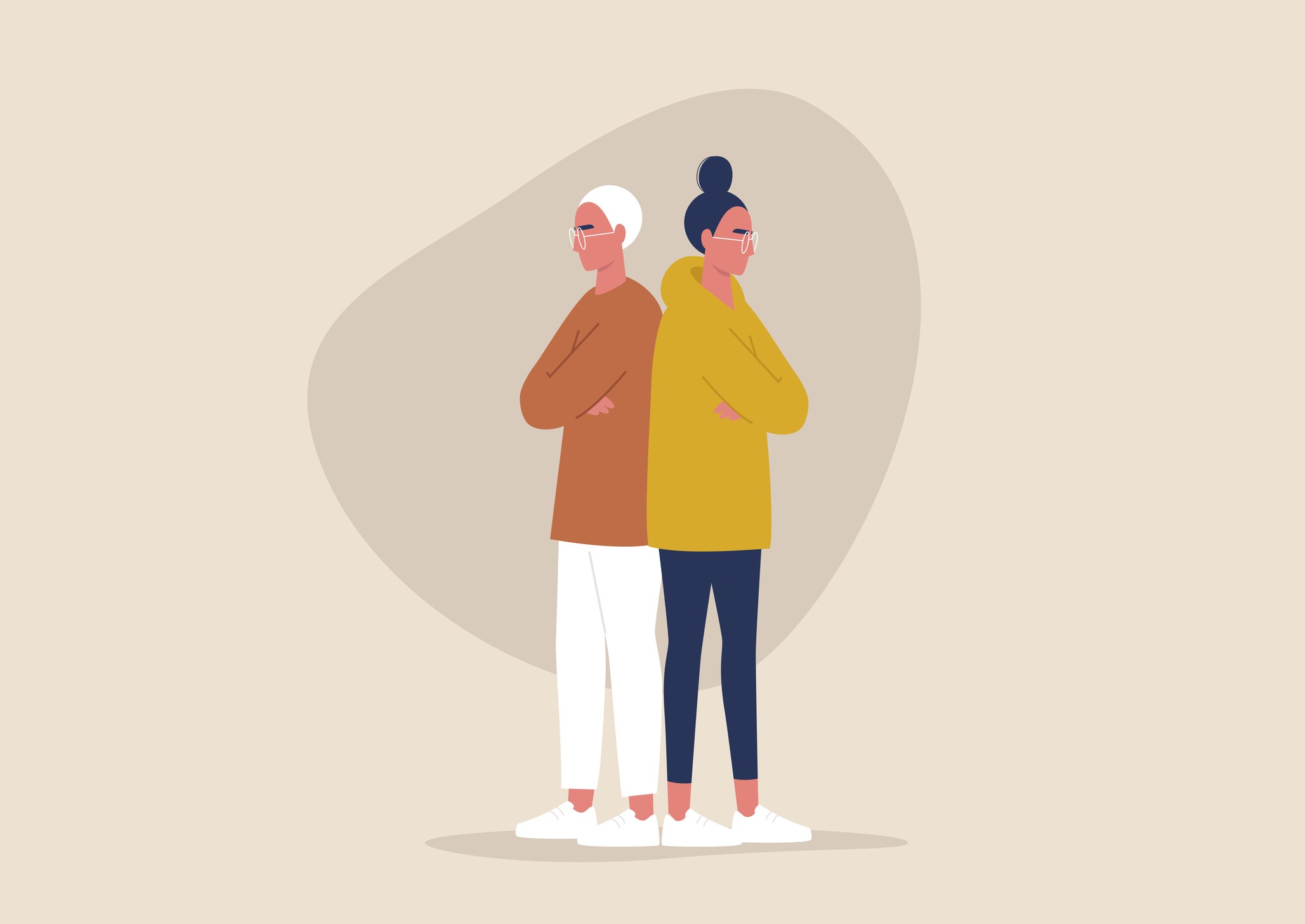Don’t let jealousy ruin a friendship
Just as you can lose a romantic partner to jealousy, you can also lose a friend, write Juli Fraga and Connie Chang

When Bob Bergeson’s friend invited him to a basketball game with some new pals, he was excited to join in. Sure, the evening would cost him nearly £400, an amount he wouldn’t normally spend. But Bergeson’s splurge didn’t reflect a slavish devotion to basketball; he opened his wallet because he felt insecure about his languishing relationship with his friend, whom he perceived to be getting closer to a new group of people.
“He started hanging out with the dads on his daughter’s soccer team and talking about them fondly, and I thought, ‘Oh, man, he’s kind of got some new friends,’” Bergeson, 42, a business consultant in Denver, says. “I needed to insert myself to make sure I still mattered to him.”
Just as you can lose a romantic partner to another person, “friends can also lose their slot in the best-friend hierarchy,” says Jaimie Krems, a friendship researcher and assistant professor of psychology at Oklahoma State University. This fear of being replaced is often born out of jealousy, Krems says. And one way to cope with it, she adds, is by doing something social scientists refer to as friend guarding – actions like excessively praising a friend or cutting down a new rival, for example – to maintain a threatened relationship.
“Like all behaviours, there are good and bad aspects of friend guarding,” Krems says. Telling your friend how much the relationship means to you may bolster it, she says, but badmouthing a friend’s new friend might cause a rift.
Miriam Kirmayer, a friendship expert and clinical psychologist in Ontario, says feelings of jealousy and envy in friendships were quite common with her adult clients, but many feel ashamed of those feelings because they mistake them “as a sign of immaturity.” On the contrary, Kirmayer says. When handled correctly, jealousy can lead to a deeper understanding of yourself, and as a result, more fulfilling friendships. Here’s how.
Questions can strengthen a relationship
Feelings of fear, anger and jealousy often make people uncomfortable, but like all emotions, they evolved to protect wellbeing, says Mark Leary, a professor of psychology and neuroscience at Duke University. “Negative emotions alert us to potential danger and motivate us to take preemptive action.”
In truly perilous scenarios – like a pandemic, for instance – you might cope with your anxiety by wearing a mask and steering clear of crowds. In less dire situations, like when you think you’re on the brink of losing a friend, you might try to become a better listener or to be more upbeat.
When feelings of jealousy bubble to the surface, start by questioning how good a friend you’ve really been. You might ask yourself, “What kind of friend do I want to be?” And perhaps, the answer will help steer you towards traits that foster acceptance by your social circle, like more compassion and generosity.
When jealousy swells, it can be easy to assume there’s something wrong with you. But in most cases, this is far from the truth
Identifying the origins of your feelings can also help you pinpoint potential triggers that may make jealousy worse. If you’re already second-guessing yourself at work, for instance, you might assume a turned-down dinner invitation is a sign of a friend pulling away. In other instances, unhealed wounds from childhood – growing up with inconsistent caregivers, for example – can make you more sensitive to rejection as an adult.
To identify these potential triggers, ask yourself questions like “What past experiences might this feeling be linked to?” and “Is my jealousy triggered by circumstances in my own life?” Kirmayer suggests.
Instead of letting jealousy elicit knee-jerk negative responses like levelling accusations, you might see the emotion as a signal to talk to your friend or to work through some issues on your own.
We rarely ask ourselves, “What should I expect out of a really good friendship?” Leary says. But stating your needs and developing boundaries can solidify trust, which helps build more mature friendships.
The truth isn’t always clear
When jealousy swells, it can be easy to assume there’s something wrong with you. But in most cases, this is far from the truth. “Even though our feelings are real, our brains aren’t always objective truth tellers,” says Joel Minden, a clinical psychologist and lecturer at California State University, Chico, and the author of Show Your Anxiety Who’s Boss.
To manage self-critical thoughts, he says, take a step back and see if there’s another way to understand the situation. If your best friend cancels your weekly phone date to have dinner with a new pal, you might assume it’s because you’re a downer or a bad friend. But ask yourself if there’s any evidence for or against that belief, or if there’s “another explanation for your friend’s behaviour that’s more realistic,” Minden advises.
Replacing negative thoughts with more useful ones can ease the emotional weight that hurtful assumptions can bring, Minden adds. For example, “my friend needs different kinds of friends” is an easier pill to swallow than “my friend is replacing me”.
Reframe negative thoughts
Another way to thwart the negative feelings of jealousy is to find small ways to be happy for your friend, says Sara Konrath, an empathy researcher at Indiana University. Instead of ruminating on how a buddy’s new friendship with someone else affects you, think, “I’m really happy that she has somebody else she feels connected to,” Konrath suggests. When we prioritise empathy in friendships, reminders of how much our friends mean to us and how much we mean to them can temper jealous feelings.
As for Bergeson, he had a great time at the game. And those feelings of jealousy ended up being short-lived. “My friend made sure I was enjoying myself,” he says, “and this relieved my worries about possibly losing him to a new crowd.”
This article originally appeared in The New York Times.




Join our commenting forum
Join thought-provoking conversations, follow other Independent readers and see their replies
Comments